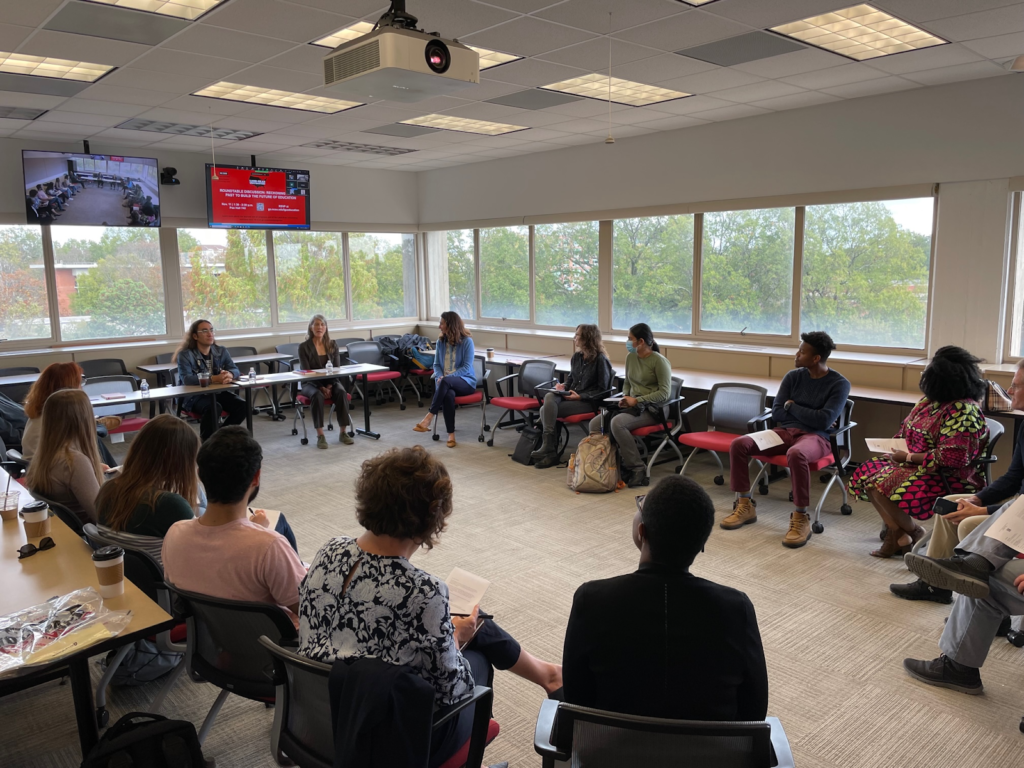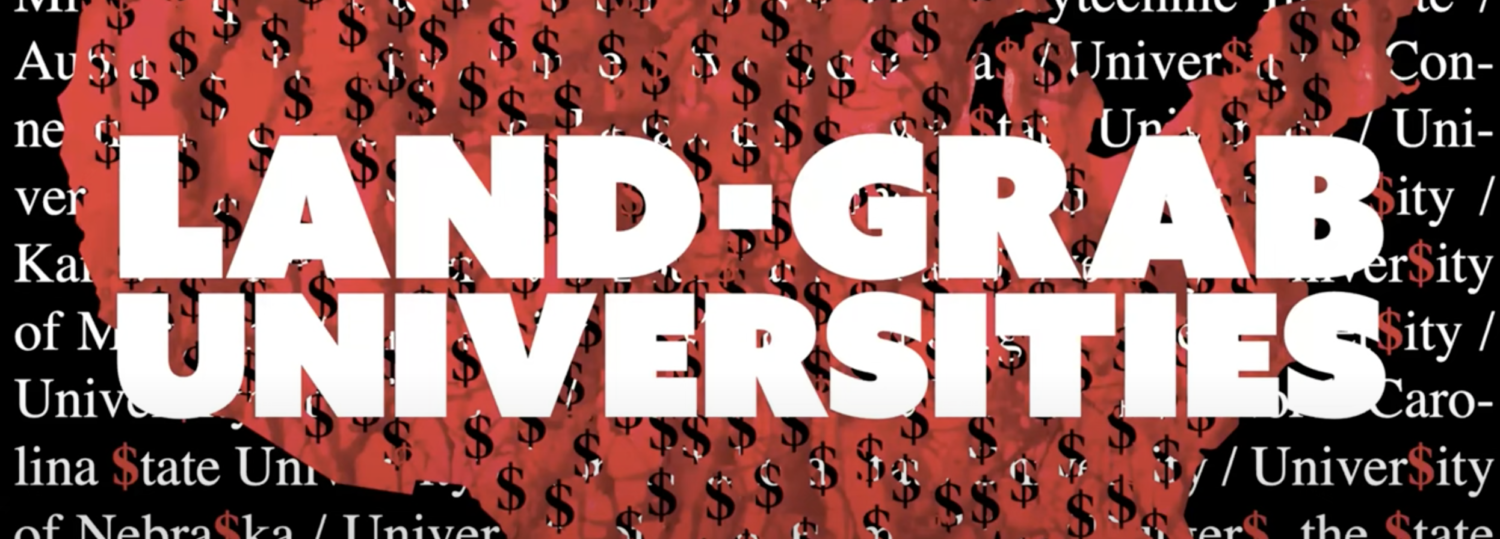On November 10-11, NC State University hosted a series of events exploring the award-winning investigative piece “Land-grab Universities,” the history of land-grant universities and the data journalism tools that made the groundbreaking project possible. This event series was one of the ways NC State participated in Native American Heritage Month.
The two-day series began with Tristan Ahtone, one of the project’s authors, joining English Department students for lunch and speaking to the Eng 316 journalism class about investigative journalism. This was followed by a virtual keynote from Tristan and his co-author, Dr. Robert Lee, and moderated by University Outreach and Engagement Vice Provost Dr. Kwesi Brookins. They discussed the funding of land-grant universities through Indigenous land dispossession and how universities have reacted to their findings. More than 160 virtual participants watched the keynote live.
Viewers can watch a recording of the keynote on YouTube.

The keynote was followed by an in-person panel discussion at NC State’s Talley Student Union on “Higher Education Land Acknowledgement,” which highlighted the advocacy and experiences of Native students on campus and the land acknowledgment movement in higher education. Panelists included Dr. Brian Peters and Native student leaders Honiah Locklear, Nathan Campbell, Lee Tartaglia and McKenzie Cummings. The Native student panelists represented the Native American Student Association (NASA), American Indian Science & Engineering Society (AISES), Alpha Sigma Phi and the Native Space Village.
On November 11, Citizen Potawatomi tribal member and cartographer Margaret Pearce gave a keynote presentation on the Land Grab Universities project and the maps and graphs created to display how Indigenous lands were expropriated to fund land-grant universities across the nation.
“Margaret gave a very thoughtful and inspiring talk that left people in the audience thinking differently about mapping and storytelling,” said Karen Ciccone, Lead Librarian for Public Science at the NC State University Libraries. “I found it to be one of the most compelling visualization presentations I have attended.”
The final event on November 11 was a roundtable discussion with both keynote speakers Ahtone and Pearce, where they discussed “Reckoning with the Past to Build the Future of Education.” The session was facilitated by Dr. Meghan Manfra, Professor of Teacher Education and Learning Sciences.
After the program, Pearce wrote a reflective note to the College of Education’s organizers, sharing, “On my way back to Maine, there were so many questions on my mind. The guiding questions you wrote on the panel agenda are hard and also so important. I too wonder what the significance of Land-Grab is for NC State specifically, and how the project methodologies resonate or not with the needs of the campus community there in Raleigh.” A student attendee, a member of the Lumbee Tribe, asked what efforts had been made to build relationships between NC State and tribal colleges. She had a vision of NC State taking an active role in reckoning with the past to build the future of education. Referencing the student’s comments, Pearce recommended the College of Education and NC State “begin building relationships and then seeing where those relationships lead.”

The organizers and sponsors for this series included the Department of English, the College of Education, the Division of Academic and Student Affairs, the Native American Student Association, the Southeast Climate Adaptation Science Center, University Libraries and University Outreach and Engagement.
Anyone interested in helping to move the land acknowledgments and other efforts on campus to respond to NC State’s responsibilities to Native communities should reach out to:
- Dr. Brian Peters (bapeters@ncsu.edu) (Land Acknowledgements)
- Native American Student Association (Ongoing Reconciliation and Reparation Efforts)
Additional resources:
